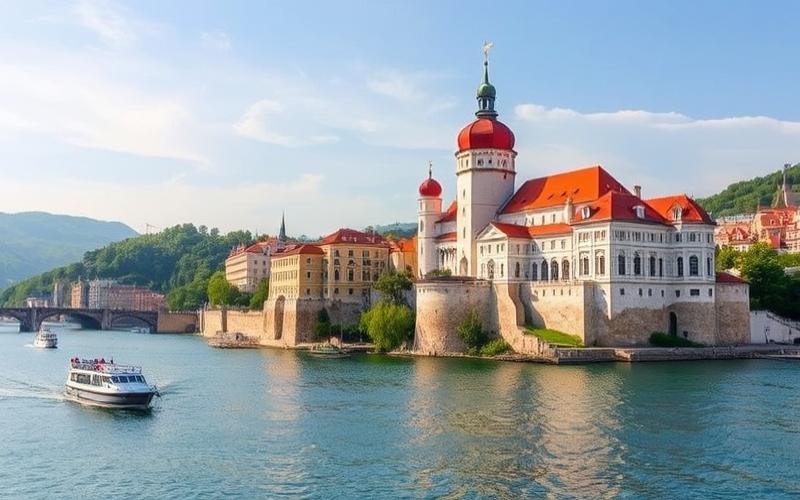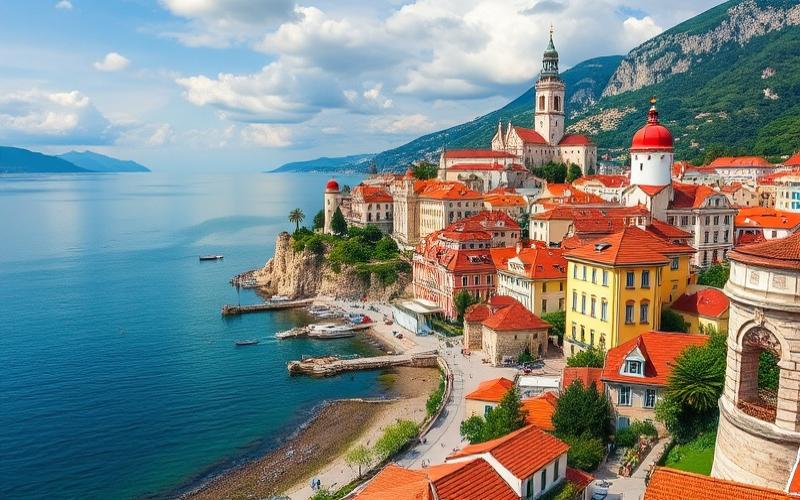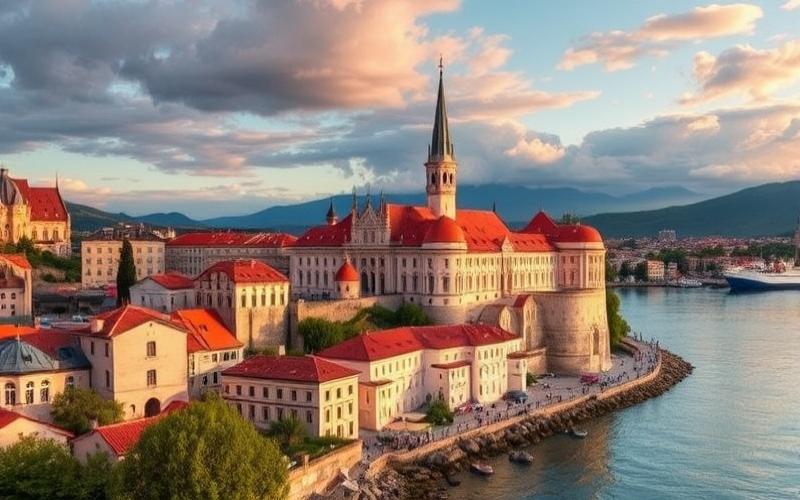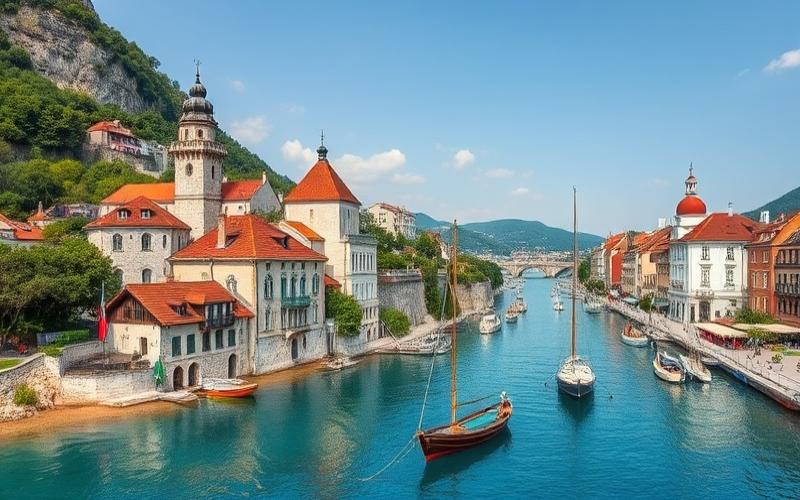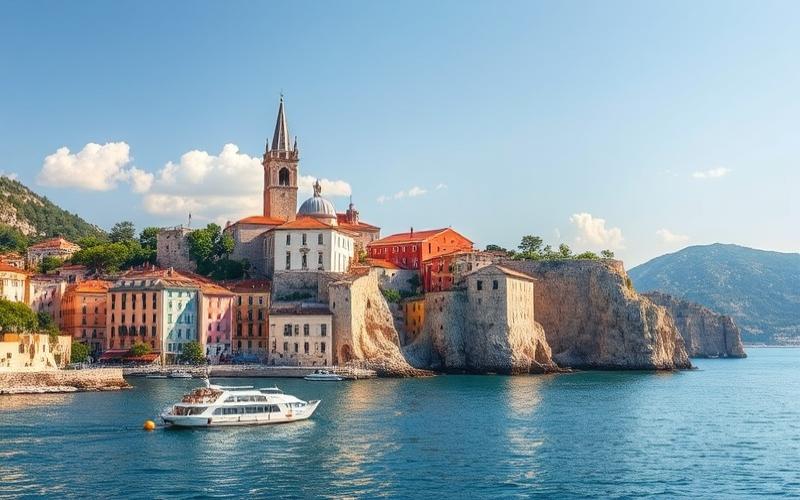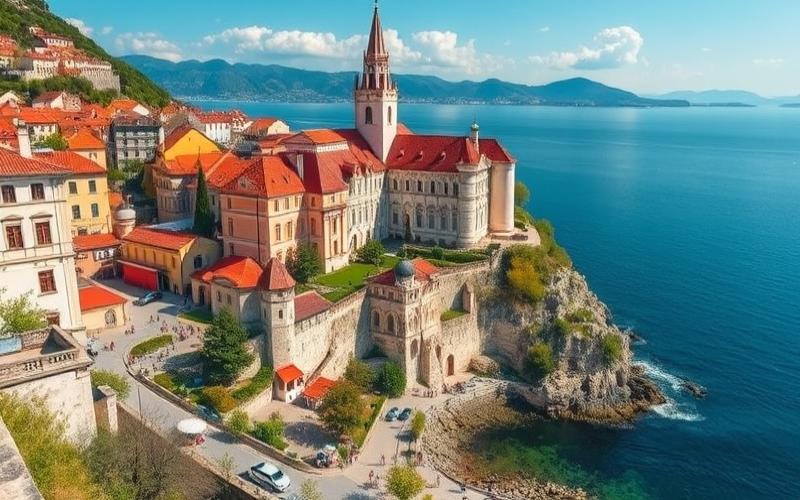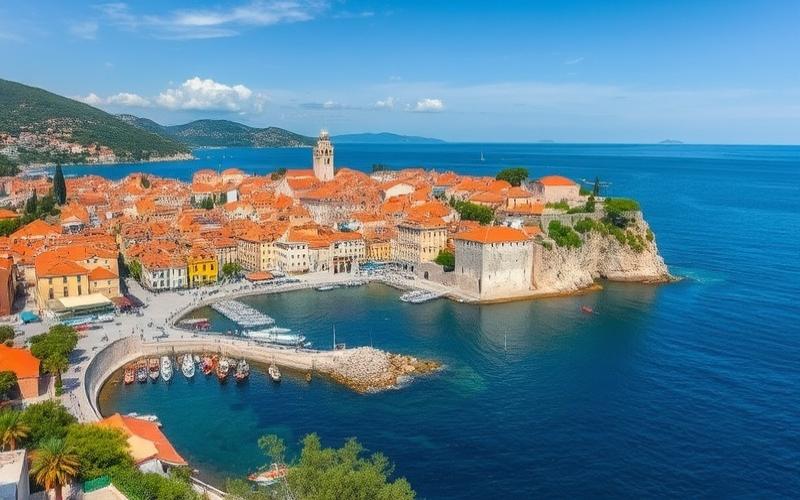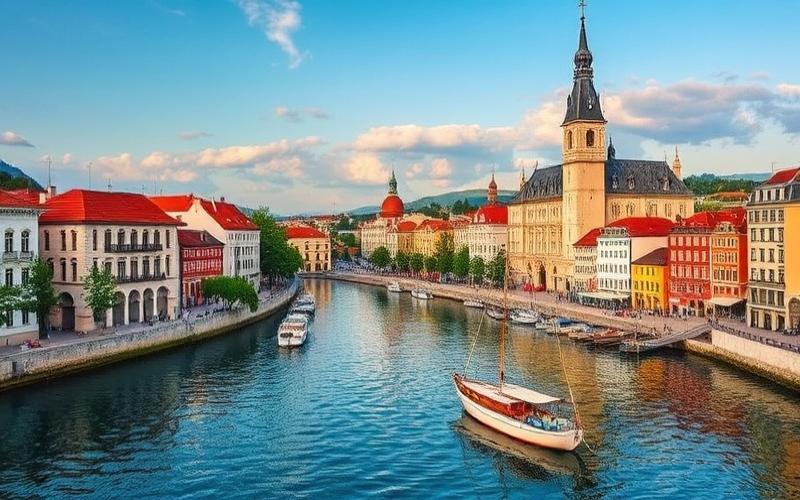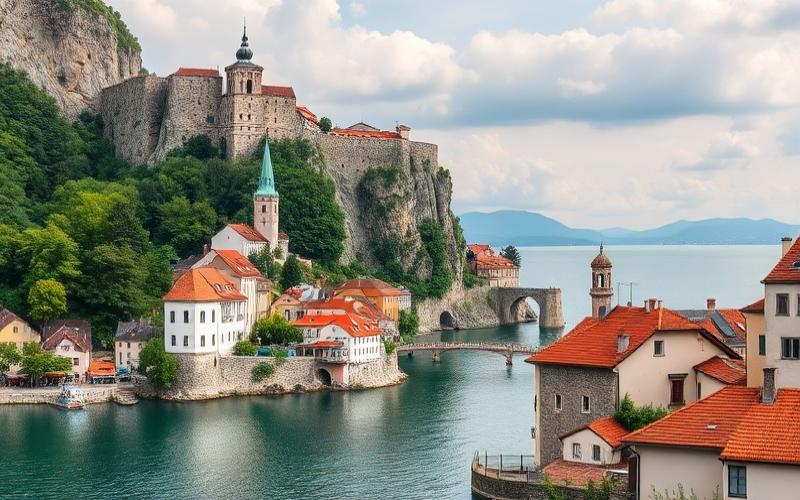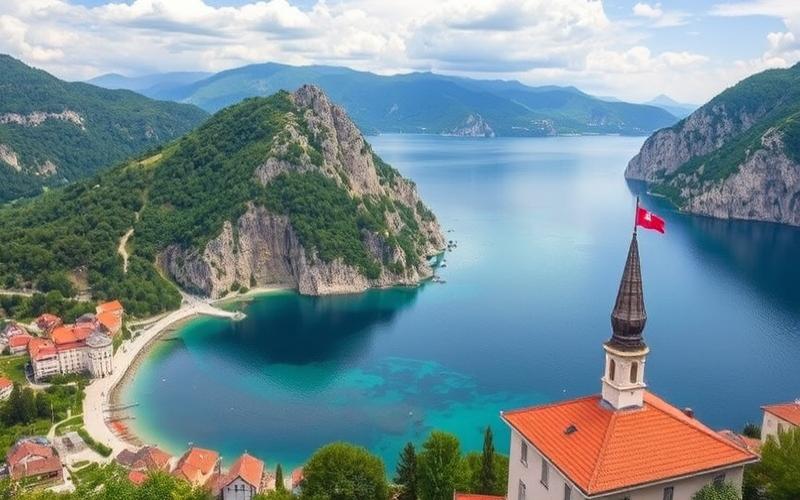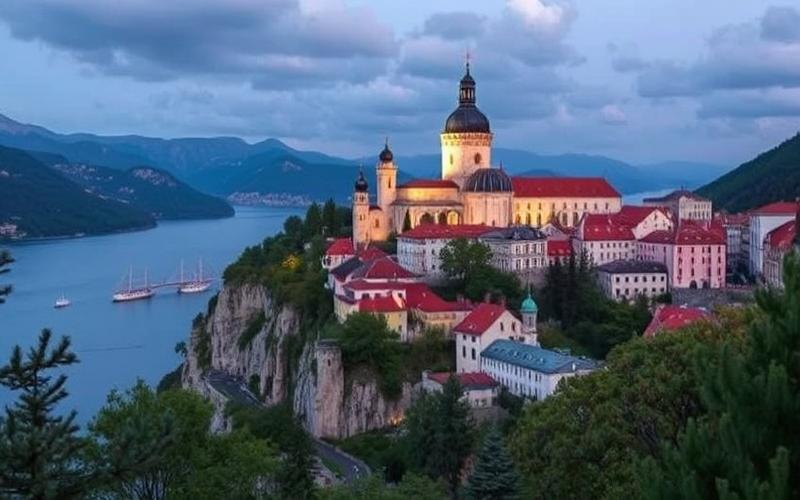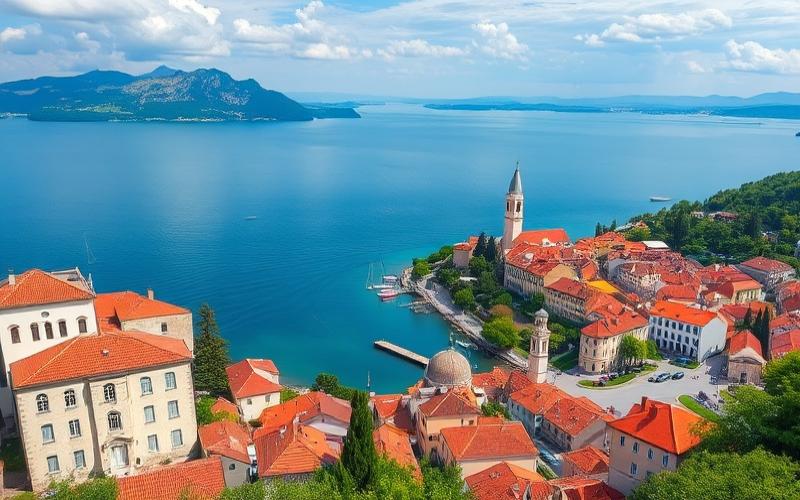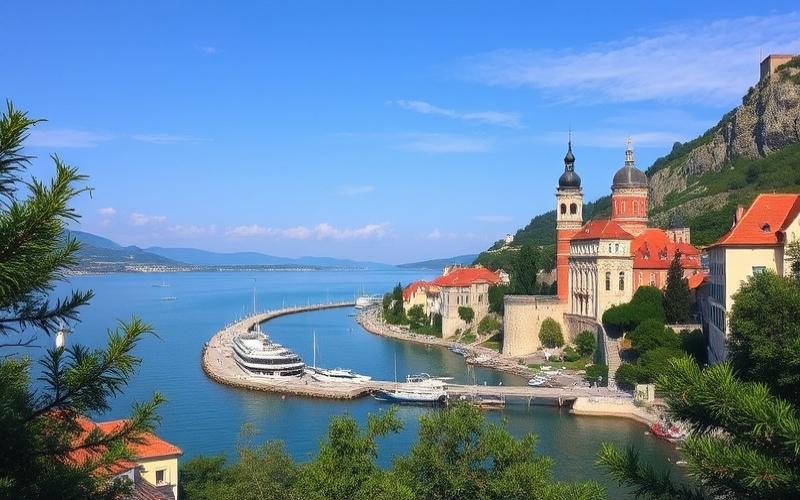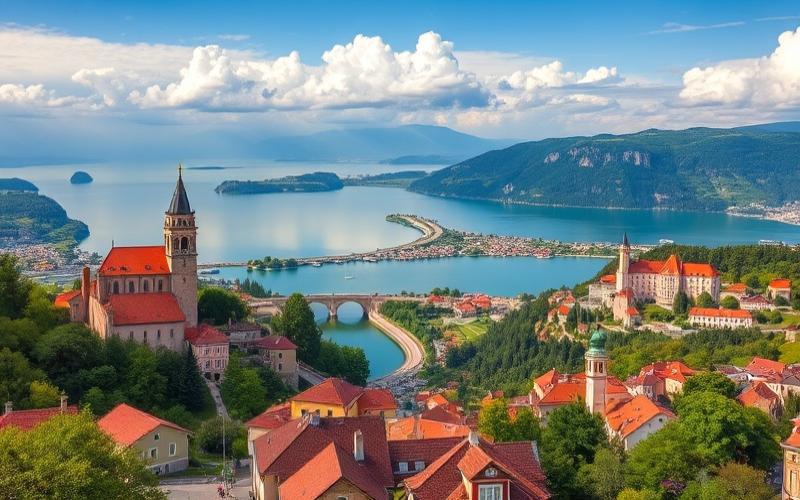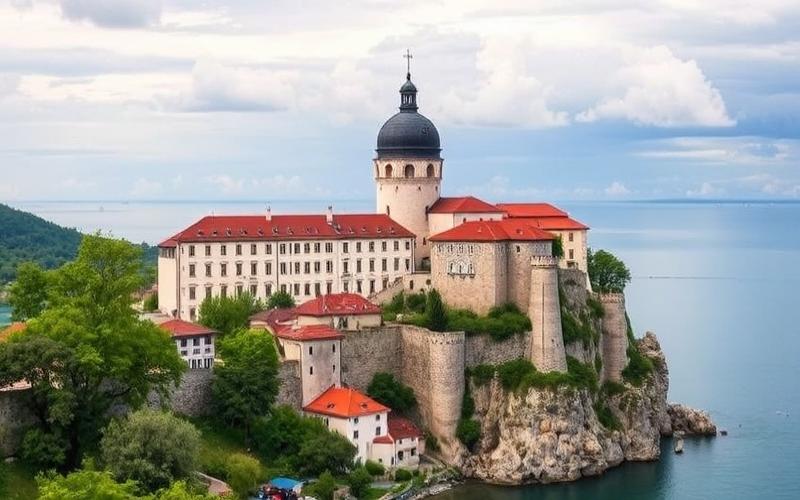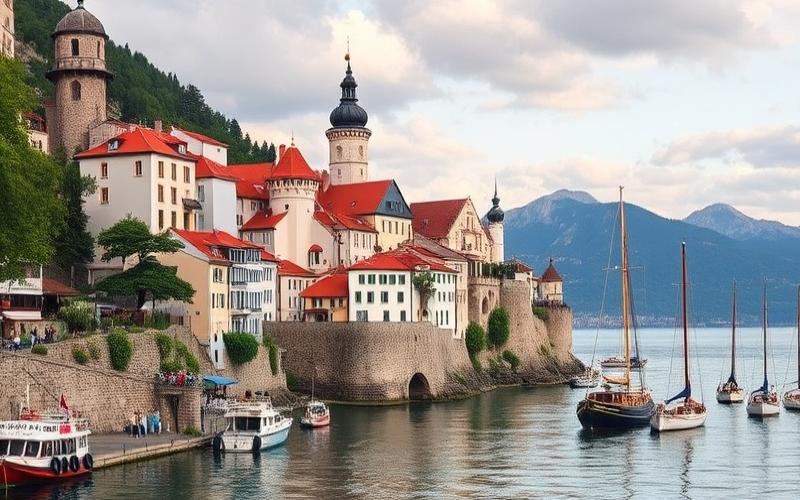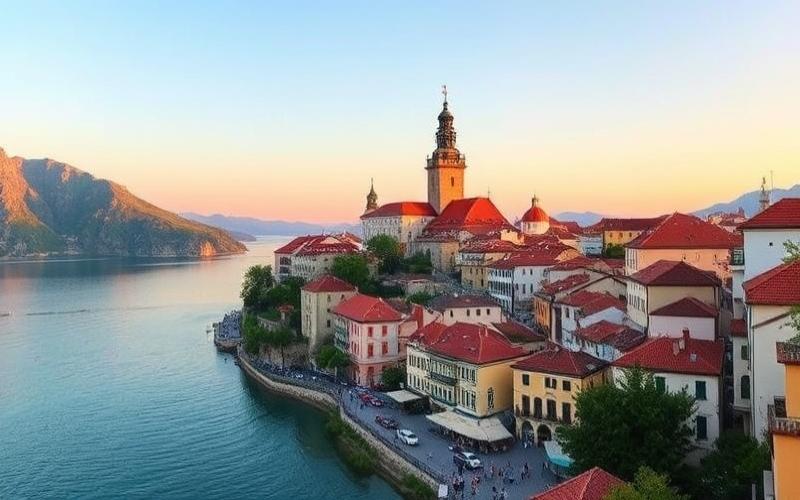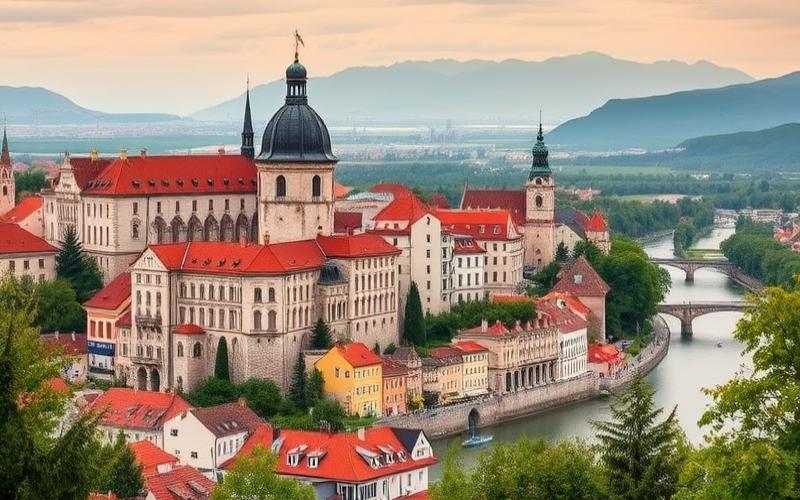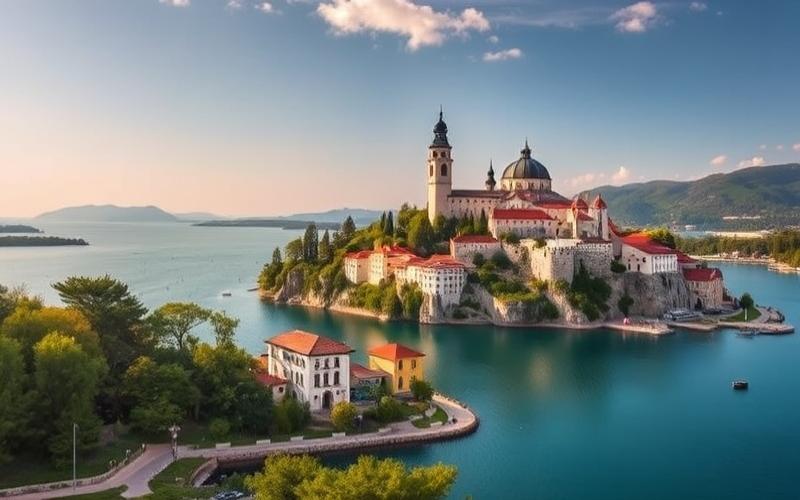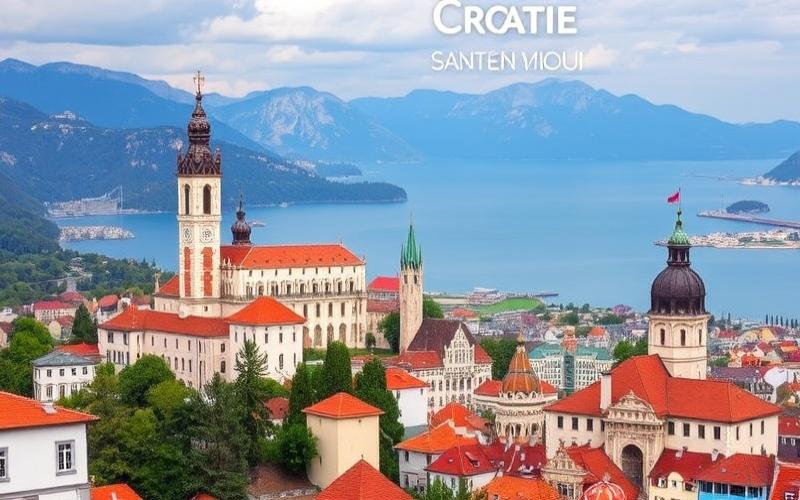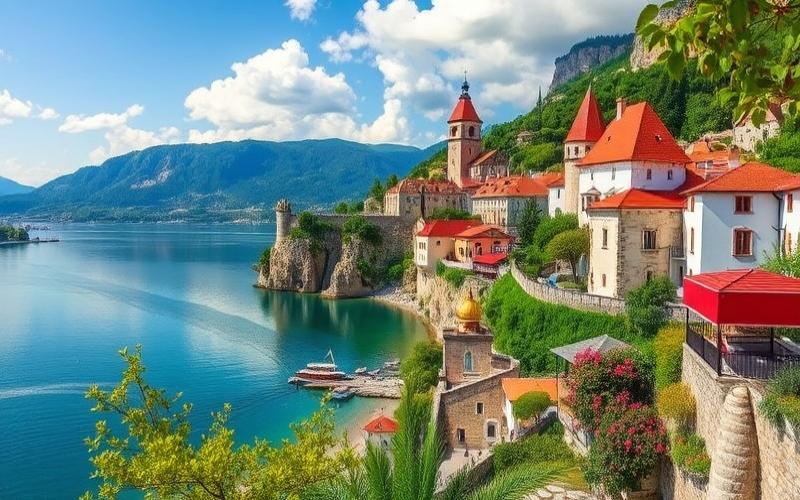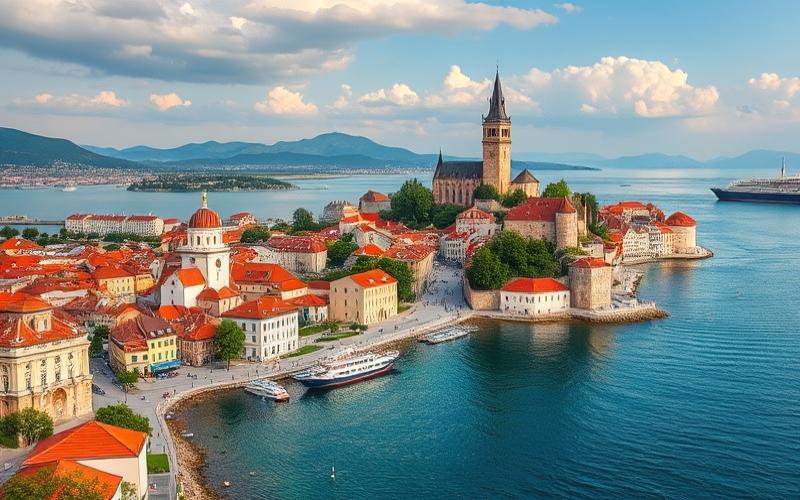
 Published on and written by Cyril Jarnias
Published on and written by Cyril Jarnias
Relocating to Croatia is an exciting adventure that requires understanding cultural differences to ensure harmonious integration.
This country, at the crossroads of Central and Southeastern Europe, offers a rich palette of traditions and customs that can catch newcomers off guard.
Whether it’s social customs, communication norms, or culinary preferences, every aspect of daily life in Croatia reveals unique facets to discover.
Mastering these cultural nuances not only makes expatriates’ lives easier but also enriches their personal experience in this multifaceted country.
The Subtleties of Croatian Social Norms
Greetings hold a central place in Croatian daily life.
| Greeting | Usage | Context |
|---|---|---|
| Bok | Informal | Friends, youth, family |
| Zdravo | Informal | Friends, everyday |
| Dobar dan | Formal | Daytime, professional |
| Dobro jutro | Formal | Morning |
| Dobra večer | Formal | Evening |
| Pozdrav | Formal/written | Emails, meetings |
- Formal greetings are reserved for elders, professional settings, or first encounters.
- Croatians value the distinction between informal (*ti*) and formal (*Vi*) address, with the latter being mandatory with strangers or in official contexts.
- A smile during greetings is appreciated and seen as a sign of human warmth.
- Close acquaintances may kiss on the cheeks (usually twice), a practice reserved for family and close friends.
Nuances of Verbal and Non-Verbal Communication:
- Eye contact is essential; it conveys sincerity and attention.
- Crossing arms or avoiding eye contact may be interpreted as a lack of openness.
- Conversations are generally calm and composed. Croatians value listening and thinking before responding.
- During meals, it’s customary to say thank you (*hvala*) and please (*molim*).
Family, the Pillar of Croatian Society:
- Family holds a primary place, strongly influencing social interactions.
- Important decisions are often made within the family.
- Respect for elders is a fundamental value; it’s reflected in how they are greeted and addressed.
- Anecdote: It’s common to see three generations sharing a table, with children addressing grandparents with deep respect, always using the formal address.
Dining Etiquette:
- Being invited to a Croatian home is a sign of trust and friendship.
- It’s recommended to bring a small gift (flowers, chocolate, wine).
- Guests are often served generously; refusing to taste something may be perceived as offensive.
- It’s polite to wait for the host to start the meal and to thank them at the end.
- Anecdote: An expatriate recounts being surprised to receive three desserts during a dinner, with the host explaining that “refusing shows a lack of gratitude.”
Perception of Time:
- Croatians appreciate punctuality, especially in professional contexts.
- However, in private settings, slight flexibility is accepted, particularly during family gatherings.
- Arriving too early at someone’s home can make them uncomfortable; being a few minutes late is tolerated, but it’s best to notify them.
- Testimonial: An expatriate shares that during an appointment, her counterpart told her “Polako, imamo vremena” (“take it easy, we have time”), illustrating the relaxed attitude outside of work.
Key Takeaways for Expatriates:
- Know how to greet according to the context.
- Respect family codes and hierarchy.
- Appreciate the conviviality of meals and the generosity of Croatian hospitality.
- Adapt to a more flexible approach to time in private life but be punctual at work.
“Social life in Croatia is a subtle blend of respect, warmth, and family traditions, where every gesture matters and every word has its importance.”
Good to Know:
In Croatia, greeting warmly and engaging in customary pleasantries is crucial during encounters, while respect for family hierarchy often shapes daily exchanges, contrasting with a relaxed approach to time, where punctuality isn’t always strictly observed.
Immersing Yourself in Croatian Traditions and Customs
The Croatian national holiday on June 25 commemorates the independence declared in 1991, a significant moment when the entire country comes together for official celebrations, concerts, and fireworks. Easter (Uskrs) is a widely observed religious holiday, marked by mass, processions, and family meals where traditional dishes are shared. The Feast of St. Martin (Martinje), celebrated mainly in November, symbolizes the end of the grape harvest and the blessing of new wine; festive meals and tastings enliven villages and wine towns on this occasion.
| Date | Holiday | Significance and Practices |
|---|---|---|
| June 25 | National Day | Independence, ceremonies, concerts |
| Easter Sunday | Easter | Mass, processions, family meals |
| Around Nov 11 | St. Martin’s Day (Martinje) | Wine blessing, festive meals |
| February 3 | St. Blaise’s Day | Procession, dove release |
| Jan-Feb | Carnival | Costumes, parades, winter chase |
Meals in Croatia are moments of sharing and conviviality. Among the emblematic dishes, peka (meat or fish and vegetables cooked under a cast-iron bell) and sarma (cabbage rolls stuffed with meat and rice) are essential for special occasions or holidays. Bread is omnipresent at the table, and it’s common to start meals with a hot soup.
- Important Traditional Dishes:
- Peka: slow cooking under a bell, concentrated flavors
- Sarma: stuffed cabbage rolls, winter dish
- Pašticada: marinated beef stew, typical of Dalmatia
- Pršut: smoked ham, served as an appetizer
Fjaka is a custom that involves embracing slowness, enjoying the present moment without stress or urgency. It’s a philosophy of life especially visible in coastal regions, where people take time to relax, admire the sea, or chat with friends.
The kava (coffee) break is an essential social ritual. Croatians meet several times a day in cafes to chat, exchange news, or simply observe life. This moment is seen as a valuable break in the day, and integrating into this ritual is an effective way to build connections.
- Cultural Aspects of the Sea and Fishing:
- Life rhythm dictated by tides and artisanal fishing in coastal regions
- Fish festivals and seafood tastings
- Respect for maritime traditions, knowledge passed down through generations
Influence on Daily Life and Expatriate Integration
Croatian life is punctuated by holidays, family meals, and cafe meetups.
Participating in local celebrations, tasting traditional dishes, and adopting fjaka allows expatriates to better understand and appreciate Croatian culture.
Integration involves respecting customs, participating in events, and being open to Croatian conviviality, where human warmth and sharing are at the heart of community life.
Key Takeaways
Participating in fjaka, enjoying coffee on a terrace, and learning about local cuisine are keys to immersing yourself in the Croatian way of life and building connections with locals.
Good to Know:
Attending festivals like St. Martin’s Day or sharing a kava can greatly facilitate your integration in Croatia, as can participating in traditional meals or appreciating fjaka to build relationships with locals.
Avoiding Faux Pas in Croatia: Practical Tips
Gestures and Behaviors to Avoid in Croatia:
- Not removing your shoes when entering someone’s home is seen as disrespectful. It’s customary to take off shoes at the entrance, and slippers are often offered to guests.
- Ignoring greetings or being cold during welcome can be misinterpreted. Politeness and friendliness are highly valued.
- Avoid interrupting or raising your voice in conversations, especially with older people or during family discussions.
Food Customs to Respect:
- When invited to locals’ homes, it’s highly appreciated to accept tasting local dishes. Refusing food without a valid reason may be considered impolite.
- It’s common to bring a small gift (chocolates, wine, flowers) to thank the hosts.
- Wait for the host to invite you to start the meal and avoid serving yourself first.
Punctuality:
Punctuality is important in Croatia, both in professional contexts and when invited to someone’s home.
Arriving late without notice is perceived as disrespectful, especially for formal appointments.
Greeting Manners:
| Context | Appropriate Greeting |
|---|---|
| Professional | Firm handshake, eye contact |
| Friendly/Family | Cheek kisses (usually 2, sometimes 3) between women or close acquaintances, handshake between men |
| Stranger/Elderly | Polite formula and respectful handshake |
Sensitive Topics to Avoid in Conversations:
- National or regional politics
- Historical conflicts (Balkan wars, relations with neighboring countries)
- Questions about religion or ethnic affiliation
These topics can revive tensions or be perceived as intrusive.
Dress Code Tips for Formal or Religious Events:
- During religious ceremonies (masses, weddings), it’s recommended to wear modest and covering clothing: shoulders, knees, and discreet necklines.
- For official or family events, elegant attire is expected (dress or suit and tie).
- Wearing shorts or overly casual clothing should be avoided in churches or when visiting religious monuments.
Respecting these customs shows your interest in Croatian culture and promotes harmonious exchanges with your hosts.
Good to Know:
In Croatia, remove your shoes at the entrance, always accept tasting local dishes, and show your punctuality; prefer formal handshakes, avoid sensitive political topics, and adopt appropriate attire for special occasions.
Disclaimer: The information provided on this website is for informational purposes only and does not constitute financial, legal, or professional advice. We encourage you to consult qualified experts before making any investment, real estate, or expatriation decisions. Although we strive to maintain up-to-date and accurate information, we do not guarantee the completeness, accuracy, or timeliness of the proposed content. As investment and expatriation involve risks, we disclaim any liability for potential losses or damages arising from the use of this site. Your use of this site confirms your acceptance of these terms and your understanding of the associated risks.

